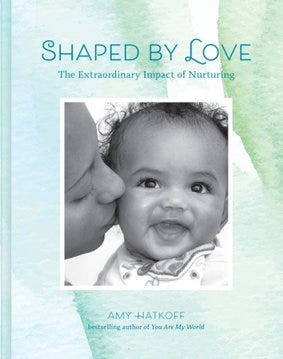Dear Small Talker,
Welcome to the fifty eighth edition of Small Talks. Every Friday, I highlight 6 areas of weekly joys and reflections in early childhood and the whole family. Small Talks leverages my experience at the intersection of education, philanthropy, and impact investing. Enjoy!
What I’m celebrating -
Zero to Three, a leading advocacy organization in early childhood development, released its 2022 annual report about the state of babies. A few highlights:
Babies are more diverse than at any other point in our nation’s history: 50.7% are children of color.
There are less babies: 11.4M in 2022 vs. 11.9M in 2019.
Pre-term birth rate for Black women is 14.4% (41% higher than national average).
Even before the pandemic, 2 in 5 babies lived in families without enough income to make ends meet (less than 200% of poverty level). 18.6% of babies live in poverty (good news: it is down from 22.7% in 2019).
Only 36.9% babies are read to daily.
1 in 5 (21.9%) mothers of infants and toddlers rated their own mental health as worse than “excellent” or “very good”, an increase from 2021.
Multi-year research study found the presence and usage of public libraries and museums to be positively associated with multiple dimensions of social wellbeing—in particular, community health and school effectiveness.
A new pool of funds in care: Magnify Ventures officially launches its fund.
A joyful highlight of playful designs all over the world…My two favorites are the water slide and the basket bin, what are yours?
Thank you to all care providers and teachers on provider appreciation day 2022.
What I’m listening to -
A terrific OnBeing podcast with two leading activists Ai-Jen Poo (care) and Tarana Burke (me too) on the “future of hope”, including the creativity of hope and seeds of hope, and movement building.
What I’m reading -
“Shaped By Love - The Extraordinary Impact of Nurturing” by Amy Hatkoff offers inspiration while communicating the science of development. It includes beautiful pictures of little ones and research-based parenting recommendations.
What I’m watching -
Rosemarie Allen discusses how school suspensions and expulsions for young children are an adult behavior in this TED Talk.
What I’m learning and exploring more deeply -
An important read about structural inequities: The State of Black America and COVID-19: a Two-Year Assessment.
> 200,000 U.S. children have lost a primary or secondary caregiver due to the pandemic, and 65% were children of racial and ethnic minorities.
Another great reporting by Jackie Mader at Hechinger Report on how more employers are offering child care benefits to lower-wage or hourly workers.
New study shows that 66% parents experienced burnout during the pandemic.
Four excellent pieces about education with different- sometimes diverging - perspectives:
“Learning more” by David Leonhardt looks at how/why education improved in the 1990-2000’s.
“Not good for learning” by the same journalist summarizes a new Harvard report looking at the inequitable effects of COVID and school closures.
A new survey and analysis by Anya Kamenetz at NPR shows:
nearly half of parents (47%) think that “the pandemic has not disrupted by child’s education”
82% agree that “my child’s school has handled the pandemic well.”
High schoolers view improving education as the most important issue.
Poem I’m pondering -
Feedback is a gift. Which part above is your favorite? What did I miss? What do you want more or less of? Other recommendations? Please kindly let me know. Thank to all of you who are sending me amazing suggestions.
If you enjoy this newsletter, please help spread the word by sharing with your friends, colleagues, and networks.
Have a wonderful week. Please stay safe and care for each other.
Isabelle






